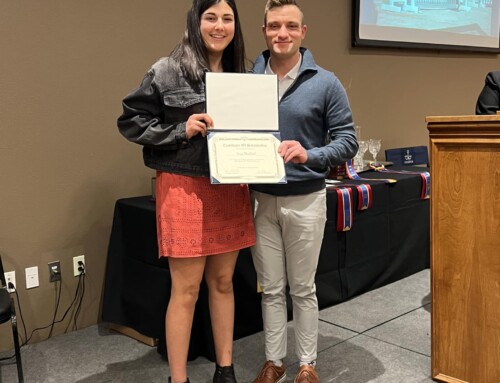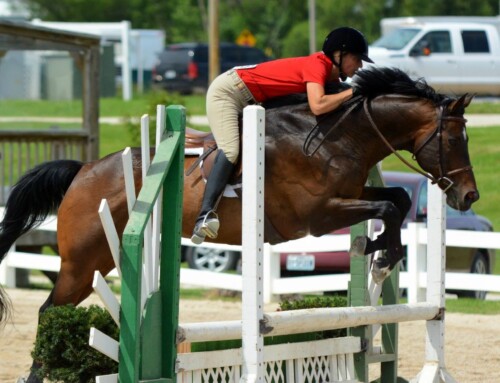Horse Protection Act
Many members of the American Saddlebred Horse Association (ASHA) are aware of the U.S. Department of Agriculture’s (USDA) Animal and Plant Health Inspection Service (APHIS) recently proposed changes to the regulations governing enforcement of the Horse Protection Act (HPA).
The HPA is a law that was created primarily to end the practice of “soring” in some parts of the Tennessee Walking Horse, Racking Horse, and Spotted Saddle Horse Industries (all non-United States Equestrian Federation (USEF) regulated breeds). This law was passed by Congress and is enforced by the USDA. The USDA has the authority to create any Rules it deems necessary to enforce this law. These Proposed Rules were published on July 25, 2016 and a 60-day Public Hearing and Public Comment period began. This comment period ends September 26, 2016 at which time the USDA will review comments, make any revisions/changes, and finalize the Rule. Because the HPA is already a law, there is no Congressional vote.
The ASHA remains dedicated to upholding the highest standard of equine welfare, and remains opposed to any and all practices that are designed to inflict pain or cause distress to horses, including the practice of “soring”. However, the proposed rule forbids the use of pads, bands and action devices in Tennessee Walking Horses, Racking Horses, Spotted Saddlehorses “AND RELATED BREEDS”. Elsewhere in the rule it mentions horses that “move with an accentuated gait.” We feel that the language used in this proposed rule is far too broad and would encompass many breeds including the American Saddlebred, Hackney, Morgan, Arabian and Half-Arabian, who have no history or soring nor any incentive to do so. All of these are “TROTTING BREEDS” and a horse cannot trot if it is not sound.
The ASHA, UPHA, AHHS and AMHA have been working with the USEF and the American Horse Council (AHC) to lobby the USDA to add clarifying language regarding their proposed rule changes to the HPA. Our main objective is to exclude trotting breeds (American Saddlebred, Hackney, Morgan, Arabian and Half-Arabian) from the regulation in order to eliminate any question about the application of these regulations to these breeds. Historically, these breeds have had no soring issues, are all USEF Affiliated breeds and are well regulated by USEF at recognized competitions.
WHAT CAN I DO?
We encourage the membership to comment on the proposed changes to the HPA, specifically citing that all TROTTING BREEDS be excluded from this regulation.
GO TO THIS WEBSITE TO MAKE YOUR COMMENT
http://www.regulations.gov/docket?D=APHIS-2011-0009
If you have problems with the Regulations.gov page loading, try cutting and pasting the above link into your browser. Also try visiting the page early in the morning or late in the evening when “traffic” may be lighter. Keep trying because every comment counts!
Postal Mail/Commercial Delivery: Send your comment to:
Docket No. APHIS-2011-0009
Regulatory Analysis and Development, PPD, APHIS, Station 3A-03.8
4700 River Road Unit 118
Riverdale, MD 20737-1238
SUGGESTED POINTS TO MAKE IN COMMENTS TO USDA
- The proposed rule is overly broad and goes well beyond the statutory authority of the HPA.
- The proposed rule is vague and open to interpretation
- Inclusion of ‘related breeds’ captures many performance breeds not subject to soring practices, including American Saddlebreds, Morgans, Hackneys, and Arabians
- Prohibition of pads and wedges undermines the purpose and integrity of many breeds and is antithetical to the intention of insuring both soundness and performance
- The use of pads, wedges, hoof bands and weights are common practice in many USEF member breeds. Use does not involve soring, yet is prohibited under the proposed rule
- Lubricants on outer extremities are prohibited under the rule without adequate definition and such prohibitions could be detrimental to the horse
- The rule, as currently written, would have major economic implications for the show horse industry and would cause loss of jobs and devastate small businesses.
- We request the proposed rule be rewritten to exclude all trotting breeds.
It is imperative that your comment be individualized and personal. It may not be duplicated or a “form letter” or it will not count. Concise, well-written, educated, professional comments will carry more weight than a vague or angry response. Please feel free to use verbiage from any of these comments below which were presented at the USDA Headquarters at the final public meeting on September 6th, HOWEVER YOU MUST MAKE YOUR COMMENT YOUR OWN!
Comments will be received until September 26, 2016 at midnight.
ASHA – Bob Funkhouser
AMHA – C. A. “Tony” Lee
UPHA – Smith Lilly


